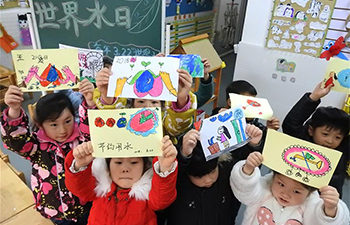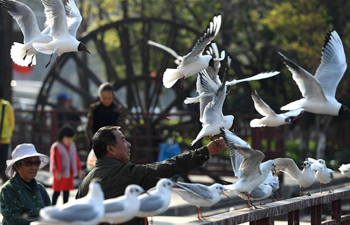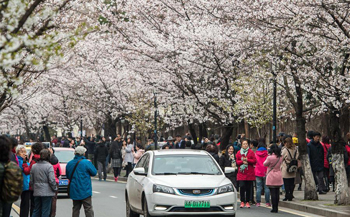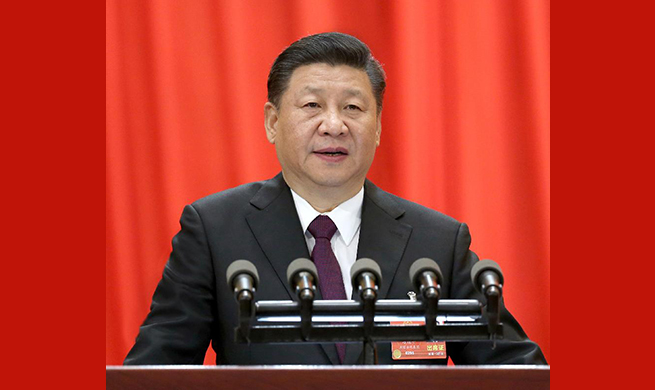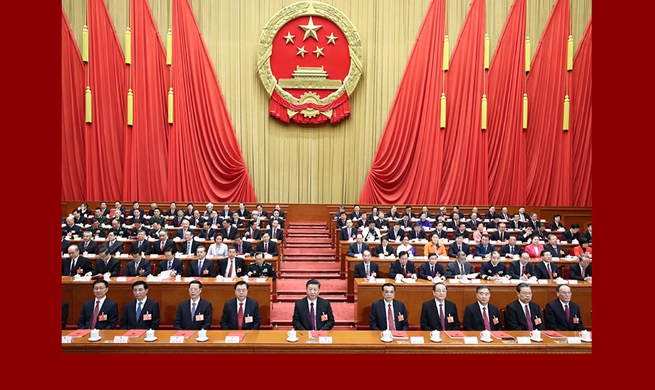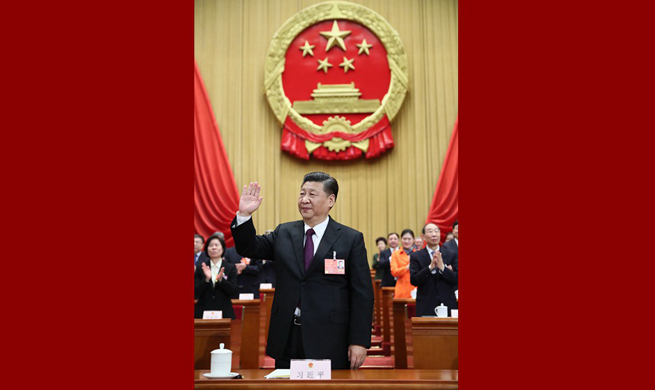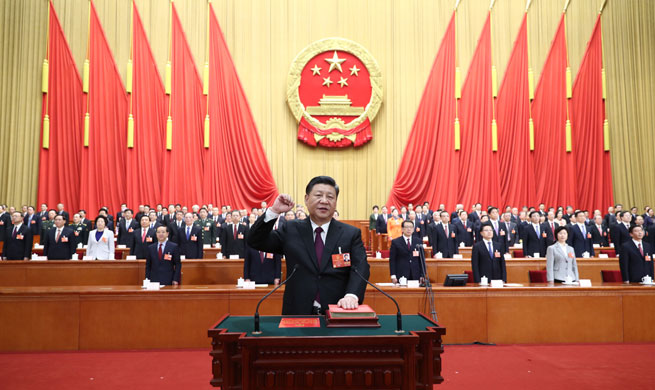By Xinhua writers You Zhixin and Wang Ruoyao
SHANGHAI, March 22 (Xinhua) -- Tan Wansheng, 69, feels lucky to be able to support himself, while many of China's elderly rural residents are normally financially dependent on their children.
Tan, from Chaling County in central China's Hunan Province, earned 4,000 yuan (631 U.S. dollars) last year from growing oranges for Vingoo, a domestic brand of vending machines that offer fresh-squeezed orange juice in 176 Chinese cities.
An officially recognized impoverished county, Chaling faced grave challenges in increasing villagers' income, but its cooperation with Vingoo since early 2017 has opened up new possibilities.
"Villagers love the project," Tan said.
The project, which earns each grower 7,000 yuan a year on average, has lifted 300 families out of poverty in the county, said Zhou Qi, founder of Shanghai Geant Investment Company, which owns Vingoo. "It is part of our corporate social responsibility."
The case epitomizes the ever-increasing role of private enterprises in poverty alleviation, one of China's "three tough battles" for the next three years, by virtue of their advantages in emerging industries, such as "New Retail" and e-commerce.
Following 40 years of reform and opening up, China has 27 million private enterprises, which contribute more than 60 percent of the country's GDP growth and create more than 80 percent of jobs.
Private enterprises are good at designing and implementing targeted projects for poverty reduction and making best use of their limited resources, according to a report on the performance of Chinese enterprises in poverty alleviation published in July.
Private entrepreneurs are sensitive about the market, said Tu Jianhua, chairman of the industry and commerce federation in southwest China's Chongqing Municipality. "They bring market-based methods and ideas to the countryside, and better adapt to small rural businesses. What's important is, it's a win-win thing."
Engagement in poverty relief facilitates branding, and also results in economic returns due to lower labor costs and resource prices in rural areas, said Zuo Jianming, senior analyst with Orient Securities.
Vingoo sells 4 million cups of orange juice per month through terminals at shopping malls, airports and metro stations. After scanning a QR code on the machine, the customer watches the oranges be peeled, squeezed, and the juice delivered just in a minute.
"We plan to expand the business to the United States, the Republic of Korea and Australia. My dream is to make Chaling oranges a global brand as famous as Sunkist," Zhou said.
Chaling oranges are exceptionally sweet, but many local residents were unaware of their value, he said.
Under an agreement with the local government, the company offers training on orange growing and local financial institutions provide farmers with preferential loans to start their businesses.
As a result, the yield per acre has more than doubled, Zhou said.
The county is ready for a final examination by state poverty alleviation authorities before being removed from the country's list of poor counties.
Renowned Chinese economist Li Yining is positive about the potential of private enterprises in fighting poverty, believing they better understand the market. "For example, you cannot only know how to grow vegetables, but also must know where they should go. Private enterprises are better at such market behavior," Li said.
China's e-commerce giants, such as Alibaba and JD.com, have been earnestly involved in the sale of farm produce from poor villages, with marketing support and lower or no fees.
Alibaba has carried out more than 100 rural projects on its online shopping platform Taobao. It is extending its reach to more fields by committing 10 billion yuan over the next five years in a fund dedicated to poverty eradication.
Liu Qiangdong, chairman of JD.com, said the company will focus on branding of farm produce from rural poor. "Without a known brand, the products don't make much profit," he said.
YTO Express, a leading courier with 68,000 branches nationwide, helped with sale of farm produce, including kiwifruit, dates and pears, from three poor counties in Shaanxi Province on its online shopping platform.
The company worked with local governments to set up new service centers in the counties, which have lowered logistics costs for the products and added a price advantage, said Ye Feng, vice president of YTO Express.
They also offer courier jobs for poor rural youth, Ye said. "They lift themselves out of poverty."
The Chinese government has encouraged private companies to help with poverty reduction.
In October 2015, the All-China Federation of Industry and Commerce launched a poverty-relief campaign mobilizing private enterprises. By the end of 2017, the campaign involved 46,200 enterprises, benefiting 51,200 villages.
China aims to lift all citizens out of poverty by 2020. As of the end of 2017, the country had 30.46 million poor residents, compared with 98.99 million in 2012, according to the National Bureau of Statistics.




